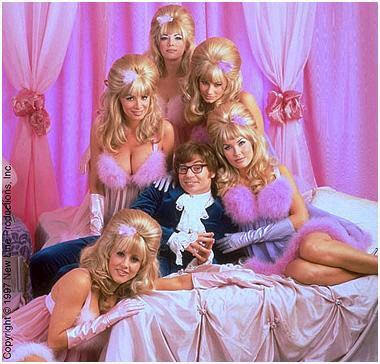I have quite a few science news feeds pumping content into my aggregator. These have been quite useful, and have brought to my attention several interesting studies that I would not have read about otherwise. (Although one does, of course, have to consult the primary articles to get past the common problems in media reports).
Unfortunately, the gems appear to be rare amidst the rubble of science writing on these services. Many of them are just parroted press releases (which, as we all know, can be the worst for sensationalizing research). Others have staff writers producing original contributions. LiveScience is one with its own writers, some of which I have complimented (here and here), and others I have criticized (here and here), in previous posts.
But here’s the post that finally earned LiveScience their walking papers:
Forecast: Sex and Marriage with Robots by 2050
In it, we are treated to the musings of David Levy at the University of Maastricht in the Netherlands, who earned a Ph.D. for writing a thesis claiming that humans will marry robots within the next few decades. If you think that’s ridiculous, wait until you see what he told LiveScience in this story:
“My forecast is that around 2050, the state of Massachusetts will be the first jurisdiction to legalize marriages with robots.”
“Massachusetts is more liberal than most other jurisdictions in the United States and has been at the forefront of same-sex marriage. There’s also a lot of high-tech research there at places like MIT.”
“If you ask me if every human will want to marry a robot, my answer is probably not. But will there be a subset of people? There are people ready right now to marry sex toys.”
“Maybe some other relationships could welcome a robot. Instead of a woman saying, ‘Darling, not tonight, I have a headache,’ you could get ‘Darling, I have a headache, why not use your robot?'”
“The question is not if this will happen, but when. I am convinced the answer is much earlier than you think.”
“Love and sex with robots are inevitable.”

This is not science, it is not news, and it is not something I want cluttering up my aggregator feed. So long, LiveScience, it’s been a slice.
It pains me to say it, but in light of other complaints from scientists in the blogosphere (e.g., here and here), I am actually beginning to wonder if, despite the efforts of some excellent writers, science reporting on the whole does more harm than good. I despise the ivory tower approach to academia (hence this blog), but in my opinion misinformation is worse than missing information. PZ suggests that scientists are just going to have to handle much of the reporting themselves — maybe, but we also have other things to do. Science writers — I mean, the good ones (and I know there are lots of you out there and that you are just as frustrated as I am) — what can be done about all this?

Jeeeee-zus! When your “predictions” get that far out there, why not just throw in an exploding spaceship and call it science fiction?
I despise the ivory tower approach to academia (hence this blog), but in my opinion misinformation is worse than missing information.
I worry that a vacuum of missing information will get filled by misinformation. Just ask, what would happen if the schools stopped teaching biology? Or, what if scientists never had their voices heard about global warming?
To clarify, I am only talking about popular media reports, not teaching. I think the case of global warming is interesting, because one could argue that the attempt to be “balanced” in the media made things worse. Or maybe it got people thinking and discussing. Hard to say. I would like to assume that science reporting is, on the whole, a very good thing, but I am losing faith in it the more of this sort of nonsense I encounter. (I know, don’t judge everyone on the basis of the worst examples — the same is true of scientific papers — but how can the public discern the good from the nonsense, especially when the pseudo-balance or sensationalism seems so common?).
That is the type of story that tells us more about the author than anything else. (OTOH, I get alienated by fetishism, so maybe it was just that author’s argument from “people do the damnedest things”.)
On topic: with the increasing number of easy access outlets for news and people’s participation, the frequency of crap will increase. But so will likely turnover time, and it is easier to get, say, urban legends sorted out and linked to “debunking” sites.
The problem with scientist participation in the vetting process it that it doesn’t encourage solid and general responses. Except perhaps on blogs and (refereed) wikis. (Nods towards Blake. 😛 )
Have you checked out the Science Journalism Tracker run by MIT’s Knight Fellowship people?